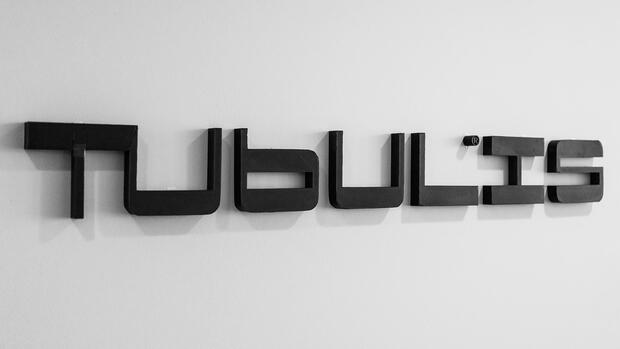The young biotech company could earn over a billion dollars with the partnership.
(Photo: tubules)
Frankfurt The Munich-based biotech company Tubulis has agreed a potentially multi-billion dollar deal with the American pharmaceutical company Bristol-Myers Squibb (BMS). BMS is paying nearly $23 million directly for access to Tubulis’ proprietary antibody-drug conjugates (ADCs), with potential contingent payments of more than $1 billion. Tubulis announced this on Thursday.
Antibody-drug conjugates are cancer drugs that are said to be gentler than conventional chemotherapy. The cell toxins used in these are coupled to an antibody. This directs them specifically to the tumor cells and thus protects the healthy tissue from the active ingredients. This reduces the side effects of cancer therapies, enables higher dosages and thus improves the fight against tumor cells and the quality of life of the patients.
Some drugs based on the technology have shown very good efficacy in clinical studies in recent years, such as the breast cancer drug Enhertu from Daiichi Sankyo and Astra-Zeneca.
New cancer drugs: pharmaceutical companies pay billions of ADC
This has brought ADC into the focus of pharmaceutical companies: Pfizer, for example, recently took over the US company Seagen, which is considered the leading developer of active ingredients based on ADC technology, for 43 billion dollars. The Mainz-based biotech company Biontech also recently secured two potential ADC-based cancer drugs from the Chinese biotech company Dualitybio.
Tubulis was created in 2019 as a spin-off from the Leibniz Research Institute Berlin and the Ludwig Maximilians University in Munich. The company raised €60 million in a B round of financing led by Andera Partners last year and is currently working on five products in pre-clinical stages of development.
The co-founder and CEO of Tubulis calls the deal with BMS a “significant step forward” for his company.
(Photo: tubules)
Tubulis co-founder and CEO Dominik Schumacher sees the agreement with BMS as a confirmation of Tubulis’ approach and a “significant step forward” in achieving the company’s goal: “We want to transform the treatment paradigms in oncology and deliver better outcomes for cancer patients. “
Antibody cancer drugs must be precisely matched
The Munich-based company considers the technology they have developed for the construction of antibody-drug conjugates to be particularly efficient. This results in particularly stable ADCs that allow tumor cells to be attacked very precisely. The decisive factor here is the right choice of chemotherapy and the connection to the antibodies.
>> Read also: mRNA vaccine significantly reduces risk of skin cancer recurrence
The toxins must not be decoupled too early so that no healthy tissue is damaged. However, they must not adhere too firmly to the antibody either, because they can only penetrate the tumor cells on their own.
BMS is the world’s largest provider of cancer drugs by sales: the company’s oncology business generated $27 billion last year. After the patents of the main sales driver, the leukemia drug Revlimid, expired, BMS is currently struggling with a drop in sales. The company is under pressure to strengthen its pipeline of new oncology products.
More: Biontech is dominating the German biotechnology sector more and more clearly
